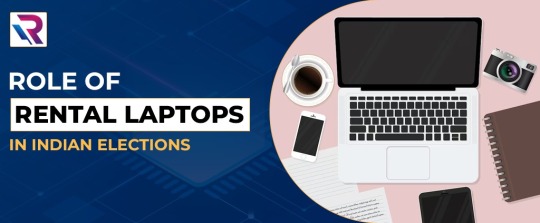#rent a computer
Explore tagged Tumblr posts
Text

Get Affordable Computer on Rent Services
0 notes
Text

#new laptop setup#type of laptop#rent a laptop#rent a computer#computer in rent#rental laptops in Indian elections
0 notes
Text

woe, p.AI.nter be upon ye....
he will NOT leave my head. get it out.
#roblox pressure#p.AI.nter#z 779 pressure#pressure fanart#fanart#pressure roblox#pressure painter#pressure p.ai.nter#digital artist#digital artwork#digital drawing#character art#clip studio illustration#fluffyhellspawn rendered art#artists on tumblr#digital art#illustration#the brainrot is real#i love this little computer a lot#he lives in#my brain rent free#<3
1K notes
·
View notes
Text







So some of y'all need to go touch some grass and learn that brotherly affection can include forhead and cheek kisses without it being gross
I like to imagine Leo is very affectionate, but when his brothers show him affection, he freezes up. Especially after the invasion, he fucking cries when his brothers show him affection wihtout him needing to "earn it" or anything like that
#sad•leonart#rise of the tmnt#rottmnt#rise leo#rise leonardo#rise donnie#rise donatello#rise mikey#rise michelangelo#rise raph#rise raphael#brotherly affection#featuring tail wags because yes#the image of leo pulling donnie away from his computer with a gentle forhead kiss to tell him he should go to bed#will forever live rent free in my head#and vice versa#theyre brothers your honour /ref#the brothers ever#i love them so much
5K notes
·
View notes
Text

Divine beings.
#elden ring#miquella the kind#shadow of the erdtree#my own work#one of the more unsettling places#unsettling and beautiful#no access to my computer but i found my old markers <3#miquella's living rent free in my head#funny how that works
777 notes
·
View notes
Text
A profoundly stupid case about video game cheating could transform adblocking into a copyright infringement

I'm coming to DEFCON! On Aug 9, I'm emceeing the EFF POKER TOURNAMENT (noon at the Horseshoe Poker Room), and appearing on the BRICKED AND ABANDONED panel (5PM, LVCC - L1 - HW1–11–01). On Aug 10, I'm giving a keynote called "DISENSHITTIFY OR DIE! How hackers can seize the means of computation and build a new, good internet that is hardened against our asshole bosses' insatiable horniness for enshittification" (noon, LVCC - L1 - HW1–11–01).

Here's a weird consequence of our societal shift from capitalism (where riches come from profits) to feudalism (where riches come from rents): increasingly, your rights to your actual property (the physical stuff you own) are trumped by corporations' metaphorical "intellectual property" claims.
That's a lot to unpack! Let's start with a quick primer on profits and rents. Capitalists invest money in buying equipment, then they pay workers wages to use that equipment to produce goods and services. Profit is the sum a capitalist takes home from this arrangement: money made from paying workers to do productive things.
Now, rents: "rent" is the money a rentier makes by owning a "factor of production": something the capitalist needs in order to make profits. Capitalists risk their capital to get profits, but rents are heavily insulated from risk.
For example: a coffee shop owner buys espresso machines, hires baristas, and rents a storefront. If they do well, the landlord can raise their rent, denying them profits and increasing rents. But! If a great new cafe opens across the street and the coffee shop owner goes broke, the landlord is in great shape, because they now have a vacant storefront they can rent, and they can charge extra for a prime location across the street from the hottest new coffee shop in town.
The "moral philosophers" that today's self-described capitalists claim to worship – Adam Smith, David Ricardo – hated rents. For them, profits were the moral way to get rich, because when capitalists chase profits, they necessarily chase the production of things that people want.
When rentiers chase rents, they do so at the expense of profits. Every dollar a capitalist pays in rent – licenses for IP, rent for a building, etc – is a dollar that can't be extracted in profit, and then reinvested in the production of more goods and services that society desires.
The "free markets" of Adam Smith weren't free from regulation, they were free from rents.
The moral philosophers' hatred of rents was really a hatred of feudalism. The industrial revolution wasn't merely (or even primarily) the triumph of new machines: rather, it was the triumph of profits over rent. For the industrial revolution to succeed, the feudal arrangement had to end. Capitalism is incompatible with hereditary lords receiving guaranteed rents from hereditary serfs who are legally obliged to work for them. Capitalism triumphed over feudalism when the serfs were turned off of the land (becoming the "free labor" who went to work in the textile mills) and the land itself was given over to sheep grazing (providing the wool for those same mills).
But that doesn't mean that the industrial revolution invented profits. Profits were to be found in feudal societies, wherever a wealthy person increased their wealth by investing in machines and hiring workers to use them. The thing that made feudalism feudal was how conflicts between rents and profits cashed out. For so long as the legal system elevated the claims of rentiers over the claims of capitalists, the society was feudal. Once the legal system gave priority to profit over rent, it became capitalist.
Capitalists hate capitalism. The engine of capitalism is insecurity. The successful capitalist is like the fastest gun in the old west: there's always a young gun out there looking to "disrupt" their fortune with a new invention, product, or organizational strategy that "creatively destroys" the successful businesses of the day and replaces them with new ones:
https://locusmag.com/2024/03/cory-doctorow-capitalists-hate-capitalism/
That's a hard way to live, with your every success serving as a blinking KICK ME sign visible to every ambitious person in the world. Precarity makes people miserable and nuts:
https://pluralistic.net/2024/04/19/make-them-afraid/#fear-is-their-mind-killer
So capitalists universally aspire to become rentiers and investors seek out companies that have a plan to extract rent. This is why Warren Buffett is so priapatic for companies with "moats and walls" – legal privileges and market structures that protect the business from competition and disruption:
https://finance.yahoo.com/news/warren-buffett-explains-moat-principle-164442359.html
Feudal rents were mostly derived from land, but even in the feudal era, the king was known to reward loyal lickspittles with rents over ideas. The "patents royal" were the legally protected right to decide who could make or do certain things: for example, you might have a patent royal over the production of silver ribbon, and anyone who wanted to make a silver ribbon would have to pay for your permission. If you chose to grant that permission exclusively to one manufacturer, then no one else could make it, and you could charge a license fee to the manufacturer that accounted for nearly all their profit.
Today, rentiers are also interested in land. Bill Gates is the country's number one landowner, and in many towns, private equity landlords are snappinig up every single family home that hits the market and converting it to a badly maintained slum:
https://pluralistic.net/2024/05/22/koteswar-jay-gajavelli/#if-you-ever-go-to-houston
But the 21st Century's defining source of rent is "IP" – a controversial term that I use here to mean, "Any law or policy that allows a company to exert legal control over its competitors, critics and customers":
https://locusmag.com/2020/09/cory-doctorow-ip/
IP is in irreconcilable conflict with real property rights. Think of HP selling you a printer and wanting to decide which ink you use, or John Deere selling you a tractor and wanting to tell you who can fix it. Or, for that matter, Apple selling you a phone and dictating which software you are allowed to install on it.
Think of Unity, a company that makes tools for video-game makers, demanding a royalty from every game that is eventually sold, calling this "shared success":
https://pluralistic.net/2023/10/03/not-feeling-lucky/#fundamental-laws-of-economics
Every time one of these conflicts ends with IP's triumph over real property rights, that is a notch in favor of calling the world we live in now "technofeudalist" rather than "technocapitalist":
https://pluralistic.net/2023/09/28/cloudalists/#cloud-capital
Once you start to think of "IP" as "laws that let me control how other people use their real property," a lot of the seemingly incoherent fights over IP snap into place. This also goes a long way to explaining how otherwise sensible people can agree on expansions of IP to achieve some short-term goal, irrespective of the spillover harms from such a move. Hard cases make bad law, and hard IP cases make terrible law.
Five years ago, some anti-fascist counterdemonstrators hit on the clever idea of blaring top 40 music during neo-Nazi marches, on the theory that this would prevent Nazis from uploading videos of their marches to Youtube and other platforms, whose filters would block any footage that included copyrighted music:
https://memex.craphound.com/2019/07/23/clever-hack-that-will-end-badly-playing-copyrighted-music-during-nazis-rallies-so-they-cant-be-posted-to-youtube/
Thankfully, this didn't work, but not for lack of trying. And it might still work, if calls for beefing up video copyright filters are heeded. Cops all over the place are already blaring Taylor Swift songs and Disney tunes to prevent their interactions with the public from being uploaded:
https://pluralistic.net/2022/04/07/moral-hazard-of-filternets/#dmas
The same thinking that causes progressives to recklessly argue in favor of upload filters also causes them to demand that web scraping be treated as a copyright crime. They think they're creating a world where AI companies can't rip off their creation to train a model; they're actually creating a world where the Internet Archive can't capture JD Vance's embarrassing old podcast appearances or newspaper editorial boards' advocacy for positions they now recant:
https://pluralistic.net/2023/09/17/how-to-think-about-scraping/
It's not that Nazi marches are good, or that scraping can't be bad – it's just that advocating for the use of IP to address either is a cure that's not just worse than the disease – it's also not a cure.
A problem can be real, and still not be solvable with IP. I have enormous sympathy for gamers who rail against cheaters who use aftermarket hacks to improve their aim, see through buildings, or command other unfair advantages.
If you want to tell a stranger how they must configure their PC or console, IP ("any law that lets you control your competitors, critics or customers") is an obvious answer. But – as with other attempts to solve real problems with IP – this is a cure that is both worse than the disease, and also not a cure after all.
Back in 2002, Blizzard sued some hobbyists over a program called "bnetd." Bnetd was a program that provided a game-server you could connect to with the Blizzard games that you'd bought. It was created as an alternative to Battlenet, Blizzard's notoriously unreliable game-server software that left gamers frustrated and furious due to frequent outages:
https://www.eff.org/cases/blizzard-v-bnetd
To the public, Blizzard made several arguments against bnetd. They claimed that it encouraged piracy, because – unlike the official Battlenet servers – it didn't check whether the copies of Blizzard software that connected to it had a valid license key. Gamers didn't really care about that, but they did respond to another argument: that bnetd lacked the anti-cheat checking of Battlenet.
But that wasn't what Blizzard took to the court: in court, they argued that the hobbyists who made bnetd violated copyright law. Specifically, Section 1201 of the Digital Millennium Copyright Act, which bans "circumvention of access controls to copyrighted works." Basically, Blizzard argued that bnetd's authors violated the law because they used debuggers to examine the software they'd paid for, while it ran on their own computers, to figure out how to make a game server of their own.
Blizzard didn't sue bnetd's authors for pirating Blizzard software (they didn't – they'd paid for their copies). They didn't sue them for abetting other gamers' piracy. They certainly didn't sue them for making a cheat-friendly game-server.
Blizzard sued them for analyzing software they'd paid for, while it was running on their own computers.
Imagine if Walmart – one of the biggest book-retailers in America – had a policy that said that you could only shelve the books you bought at Walmart on shelves that you also bought at Walmart. Now imagine that Walmart successfully argued that measuring the books you bought from them and using those measurements to create your own compatible book-case violated their IP rights!
This is an outrageous triumph of IP rights over real property rights, and yet gamers vocally backed Blizzard in the early noughts, because gamers hate cheaters and because IP law is (correctly) understood as "the law that lets a company tell you how you can use your own real, physical property." Hard cases make bad law, hard IP cases make batshit law.
It's more than 20 years since bnetd, and cheating continues to serve as a Trojan horse to smuggle in batshit new IP laws. In Germany, Sony is suing the cheat-device maker Datel:
https://torrentfreak.com/sonys-ancient-lawsuit-vs-cheat-device-heads-in-right-direction-sonys-defeat-240705/
Sony argues that the Datel device – which rewrites the contents of a player's device's RAM, at the direction of that player – infringes copyright. Sony claims that the values that its programs write to your device's RAM chips are copyrighted works that it has created, and that altering that copyrighted work makes an unauthorized derivative work, which infringes its copyright.
Yes, this is batshit, and thankfully, Sony has been thwarted in court to date, but it is steaming ahead to the EU's highest court. If it succeeds, then it will open up every tool that modifies your computer at your direction to this kind of claim.
How bad can it be? Well, get this: the German publishing giant Axel Springer (owned by a monomaniacal Trumpist and Israel hardliner who has ordered journalists in his US news outlets to go easy on both) is suing Eyeo, makers of Adblock Plus, on the grounds that changing HTML to block an ad creates a "derivative work" of Axel Springer's web-pages:
https://torrentfreak.com/ad-blocking-infringes-copyright-ancient-sony-cheat-lawsuit-may-prove-pivotal-240729/
Axel Springer's filings cite the Sony/Datel case, using it to argue that their IP rights trump your property rights, and that you can only configure your web-browser, running on your computer, which you own, in ways that it approves of.
Axel Springer's war on browsers is a particularly pernicious maneuver, because browsers are the best example we have of internet software that serves as a "user agent." "User agent" is an old-timey engineering synonym for "browser" that reflects the browser's role: to go out onto the web on your behalf and bring back things for you, which it displays in the way you prefer:
https://pluralistic.net/2024/05/07/treacherous-computing/#rewilding-the-internet
Want to block flickering GIFs to forestall photosensitive epileptic servers? Ask your user agent to find and delete them. Want to shift colors into a gamut that accounts for your color-blindness? Ask your user-agent:
https://dankaminsky.com/2010/12/15/dankam/
Want to goose the font size and contrast so you can read the sadistic grey-on-white type that young designers use in the mistaken belief that black-on-white type is "hard on the eyes"? That's what Reader Mode is for:
https://frankgroeneveld.nl/2021/08/24/most-underused-browser-feature/
The foundation of any good digital relationship is a device that works for you, not for the people who own the servers you connect to. Even if they don't plan on screwing you over by directing your user agent to attack you on their behalf right now, the very existence of a facility in your technology that causes it to betray you, by design, is a moral hazard that inevitably results in your victimization:
https://pluralistic.net/2023/08/02/self-incrimination/#wei-bai-bai
"IP" ("a law that lets me control how you use your own property") is a tempting solution to every problem, but ultimately, IP ends up magnifying the power of the already powerful, in contests where your only hope of victory is having a user agent whose only loyalty is to you.
The monotonic, dangerous expansion of IP reflects the growing victory of rents over profits – income from owning things, rather than income from doing things. Everyday people may argue for IP in the belief that it will solve their immediate problems – with AI, or Nazis, or in-game cheats – but ultimately, the expansion of a law that limits how you can use your property (including your capital) to uses that don't threaten neofeudalists will doom you to technoserfdom.

Support me this summer on the Clarion Write-A-Thon and help raise money for the Clarion Science Fiction and Fantasy Writers' Workshop!

If you'd like an essay-formatted version of this post to read or share, here's a link to it on pluralistic.net, my surveillance-free, ad-free, tracker-free blog:
https://pluralistic.net/2024/07/29/faithful-user-agents/#hard-cases-make-bad-copyright-law
#pluralistic#torrentfreak#sony#axel springer#germany#copyright#copyfight#felony contempt of business model#bnetd#computer programs directive#eu#datel#cjeu#ip#adblocking#adblock plus#eyeo#bgh#action replay#feudalism#capitalism#rents#profits
975 notes
·
View notes
Text
#rent a computer#Computer on rent#Laptop on rent#Desktop on rent#Computer rental near me#Laptop rental near me#Desktop rental near me#Affordable computer on rent#Computer on rent near me#Desktop on rent near me#Laptop on rent near me#laptop on rent in pune#laptop on rent in mumbai#laptop on rent in delhi#laptop on rent in gurgaon#laptop on rent in kolkata#laptop on rent in noida#laptop on rent in ahmedabad#laptop on rent in lucknow#laptop on rent in indore#laptop on rent in jaipur
0 notes
Text

#One Piece#Sanji#I was away from my computer for a long weekend and the second I come back I bust out a 40yo sanji like I'm possessed#this guy needs to start paying me rent
1K notes
·
View notes
Text
Okay I'm so sleep deprived so pardon whatever this is but something that's got me FUCKED up about ai generated pictures songs writing is that it just fucking kills the ability to analyse for me because there's no fucking INTENTION behind it. Like why was this decision made why were these colours used what does that say about the work NOTHING because a bunch of programming took work that DID have intent and theme and purposeful choices and turned it into SLOP. Like I COULD analyse this but it doesn't MEAN anything it's EMPTY I want to EXPLODEEE
#Like you can. You can technically analyse ai work for theme and visual literary etc motif but it's all fucking slop to me man#It's making me so cynical about like. Art. I guess. Given the state of corporations and capitalism and the endless stream of#MAKE MONEY BY ANY MEANS. FOR EVERY SECOND THE LINE DOESN'T GO UP WE EXECUTE A HOSTAGE#Like FUCK#I saw that fucking coca cola ad on tv and I wanna get violent man. Like the ad as a representation of all of. This#I know an ad isn't the same kinda thing it's just on my mind#Like nothing means anything anymore it's all gotta be slop it's all gotta be easy corporate slop to appease the market. Every fuckin thing#Ai generated shit is just an endless meaningless hole of malicious thieving garbage and I want to commit a crime#Sorry hi I've been back on that doing art professionally (kinda) grind and I haven't slept in a solid three days it's kinda wearing on me#Gonna be real lads#Oh also that's another thing this is my fucking. Like career path. I do art. And I have to monetize my one great passion. In order to eat#And pay for the constantly exploding rent prices. And now corporations are like hmmmmm#What if we didn't even pay you for that#What if. Hear me out. We stole people's work and made a computer do it#AND THE STUFF THE COMPUTER IS DOING IS GARBAGE#MEANINGLESSNESS SHIT ON TOP OF MEANINGLESS SHIT. FOR PROFIT#Uh anyways I'm going to bed now I have to get up in 3 hours I hope everyone has a better night than this and gets some rest!!#ai mention#vent post
136 notes
·
View notes
Text

Them cuddling and hugging 💘
#dav pilkey#dog man#petey the cat#lil petey#detey#someone pls take my computer away from me#They have been living in my head rent free#I think Dog Man as a therapy dog would just make Petey's mental health gets worse rather than better BHSLWWGABSPW#I hc that after losing his mom Petey rly lacks any physical love so that's why he hugs Lil Petey sm
763 notes
·
View notes
Text
Heyo! I'm still currently working on my backlog but I also have upcoming rent to pay this week so I'm opening another batch of comms!
This time I'll be doing pokemon / pkmn OCs in the style of Pokemon Cafe Mix :)
So it would look something like this:

Only opening 10 slots for now! I'll try streaming the process for them as well if I can ^^
Slots are available thru ko-fi here: https://ko-fi.com/c/0451254ff4
Thank you sm!! 💛💛💛
#I should've done this earlier bc now im pressed for time lol T_T#well... it's mostly bc i've been sketching my remaining backlog#on paper#my neck hurts whenever I draw on tablet / computer so i've decided maaaybe going traditional should help even just a lil bit#my samsung tab is kinda heavy (like half a kilo) so I can't really draw on it at just any position i'd like :T#kinda wish i'd gotten a lighter tab instead 🥲#seriously tho#but anyways!! im opening another batch of comms bc my rent is due this week 🥲#also my bday is next week...... I dont really know if i'll have enough funds by then to treat myself but i'll try to work hard 😤#bam blabs
179 notes
·
View notes
Text






"Saturdays by Twin Shadow (feat. HAIM)" is how I've mentally started every post I've made here on a Saturday for the past however many years that song's been out.
I decided I needed bath bombs so I set out to do that and only realized my error when I saw the traffic control person as soon as I turned into the mall. On the Saturday before Christmas. lol
My upstairs neighbor moved out a month ago so I no longer hear about their sex life through my ceiling. My next door neighbor moved out last week so I no longer have to wear my active noise cancelling earplugs to muffle their snoring. It’s quieter around here, but the hot water takes longer to find my tap in the morning.
I deleted a whole chapter about that computer case. You’re welcome.
Never did end up doing Christmas cards this year. I’ve got mixed feelings about that.
I want to do a bunch of dumb end of year data analysis things, but I have to pull a bunch of data to do it, and that’ll take me like a dozen minutes, and that's like a dozen minutes that I could spend not doing that thing. You see my dilemma. Stay tuned, I guess?
I’m the only one on my team not scheduled off on Monday and I think Tuesday next week (and, actually, most of the next 2 weeks). It’s easy enough to keep Teams active and my work email open while I tinker on side quests.
The checkout person at LUSH is always like “oh, are these a gift?” as I unload 9 bath bombs from my basket, as if they don't get many solo middle aged dudes stocking up on bath bombs on Saturday afternoons.
Turns out I miscounted and have 1 too many bath bombs so I’m taking a bath about it.
#that first line was going to be the whole post 🤷♂️#I intentionally don’t schedule these 2 weeks off so that I can provide coverage while folks spend time doing family stuff#the property management company lowered the asking rent by $150/mo on the longest-vacant units and they're still not finding any takers#that dude next door S N O R E D so freaking loud#like me wearing regular ear plugs NEXT DOOR weren't enough!!#this week i learned about sleeper computers and that generic family computers from like 25 years ago are going for $200+ on ebay#i do enjoy pulling data from web apis so maybe i'll do that next week instead of whatever i should be doing for work#unrelated: i hate when the definition of a word is a different form of the word#like indulgence is the act of indulging and indulging is the past participle of indulge and i have to look up 3 words to confirm what i kno#you're a computer just figure out what i want and tell me the answer!
29 notes
·
View notes
Text
i hate streaming every movie should be free
#looked up like 7 movies and they’re all rent or buy#and dont bring up torrents im on my projector and cant plug in my computer
27 notes
·
View notes
Text
I think that most men who are "financially clueless" and just go "oopsie sorry I know we had rent to pay but I just dropped $1500 on a new toy I wanted. It's your job to figure it out" aren't really financially illiterate. They seem to do that knowing fully that they don't have the financial means to do it, but then just demand the woman in their life fixes it.
He's saying, "I made a decision. I expect you to fix this by suffering yourself." So the woman goes without healthcare or food for herself and her children to try to fix the finances. If she complains, then it's *her* fault for not budgeting better or making sure he is aware of the finances (spoiler alert, he's well aware, he just doesn't care). She's expected to sell her jewelry or her car to keep the house, just because he wanted a toy. It's another shade of financial control.
#radblr#radfems please interact#radfem#radfems do touch#plaid.txt#radfems interact#i jad an ex that spent like $2k getting a tattoo sleeve commissioned and started when he had no money#i was paying for his rent at this point. he owed me like 3k. his mommy was paying his rent and he blew his mommys money too#he was jealous that i got a $150 flash from that artist who was a pretty woman. so the next day he went out and blew $2k on the depositx#and also the time he bought a new computer when he was broke and owed me rent money. fucking asshole.#my dad does this shit too. paycheck to paycheck? WELL I NEED BIGGER COOLER TIRES FOR MY TRUCK fuck the bills.
348 notes
·
View notes
Text
im watching 28 days later and messaging a friend about how crazy it that jim goes absolutely frickin feral and able to take out an entire army base on his own but is a twig and probably malnourished from being in the hospital for however long and he’s just a regular delivery boy like he was the whole damn package n they were just gonna let him die in the original ending
#I wanted to marry jim when i was little#this was like the first legit horror movie i saw#my parents rented it#and i wasn’t supposed to watch#so i pretended to play on the computer in the living room n watched that way#n lemme tell you#this movie FUCKED me up#it still fucks me up#the tunnel scene!?!#like this is the type of b.o.w situation that could actually happen#he’ll it did happen#they released a rage virus in a small african village and they literally murdered each other#like it’s horrifying
14 notes
·
View notes